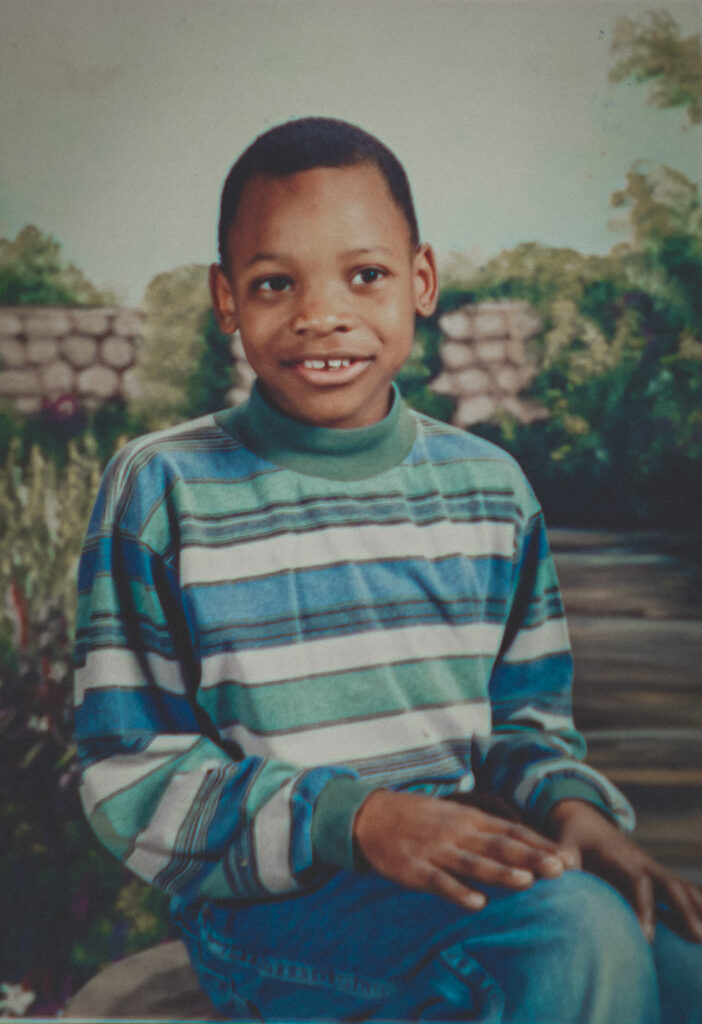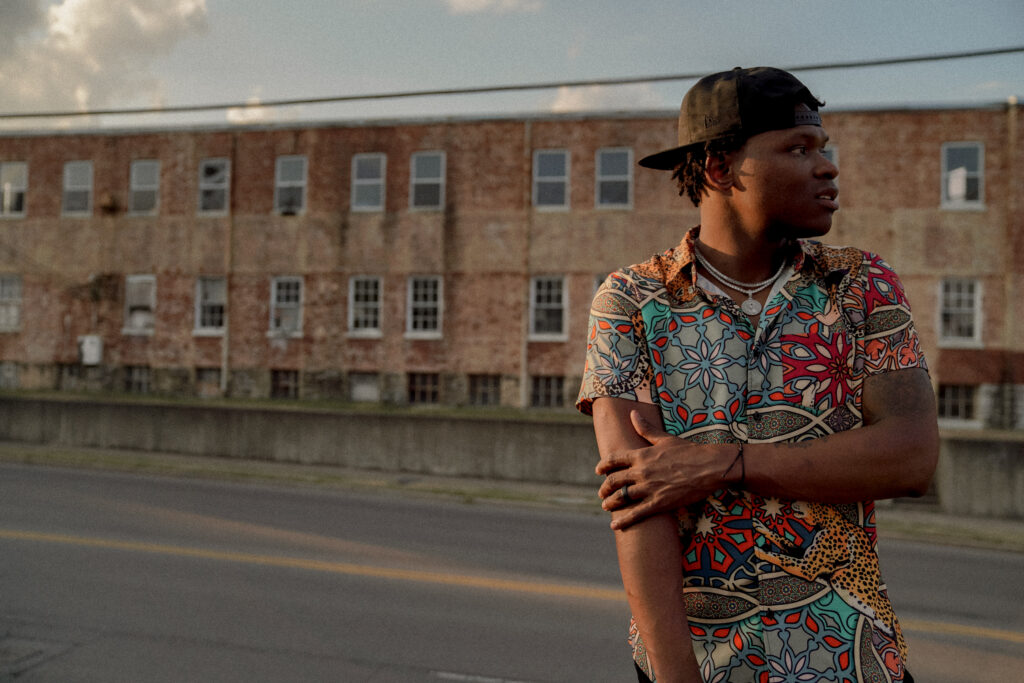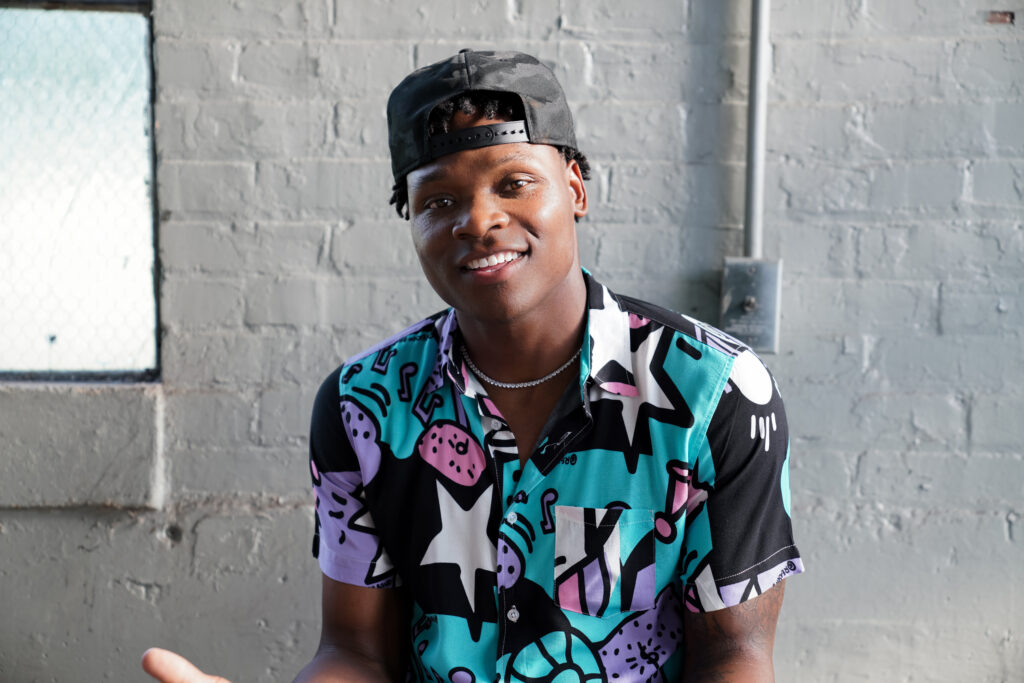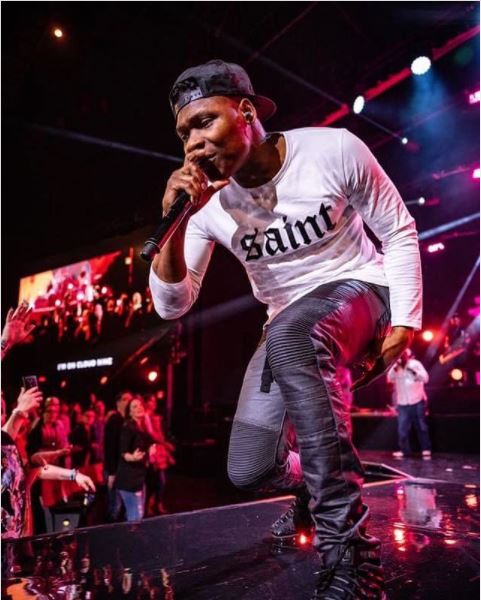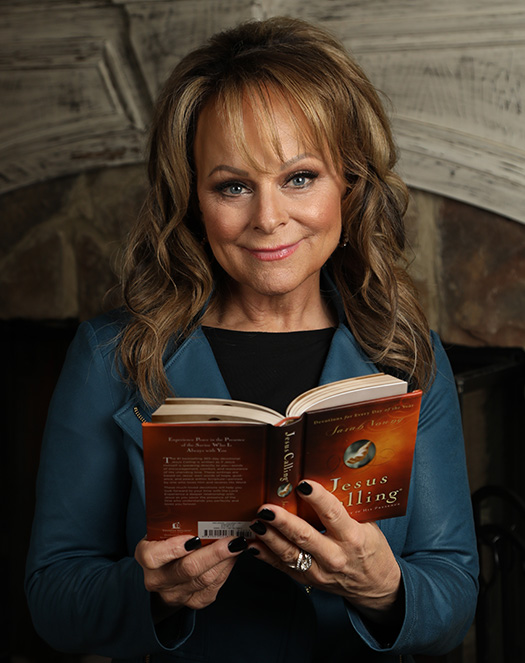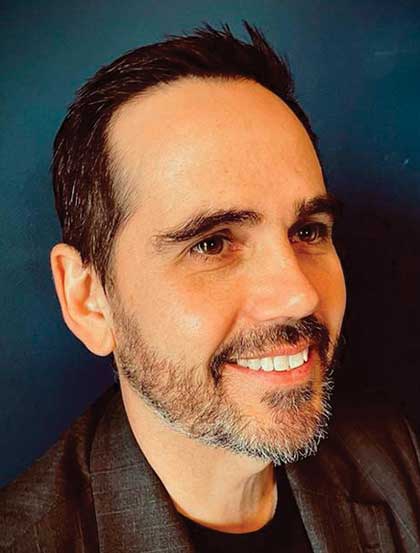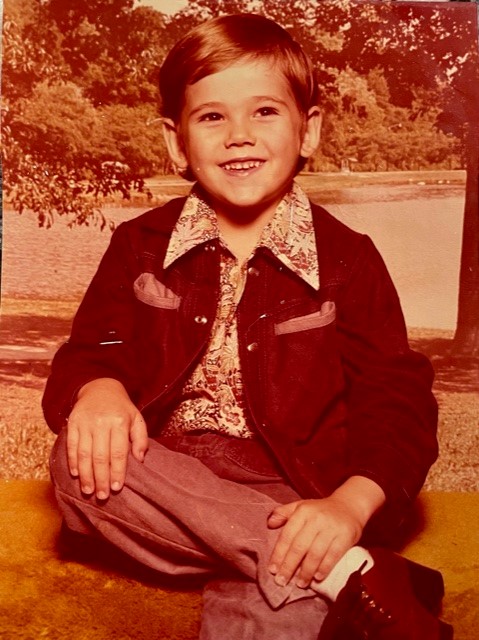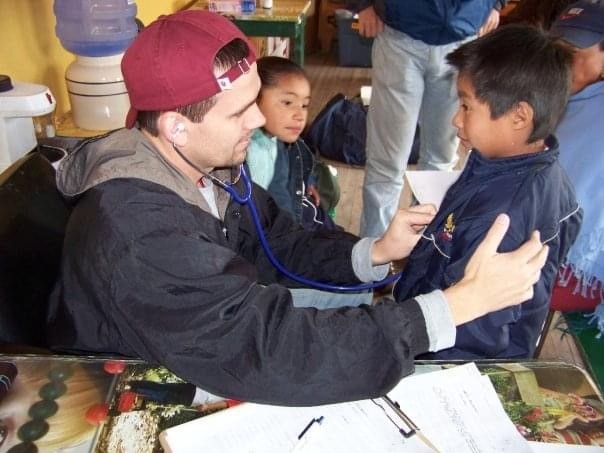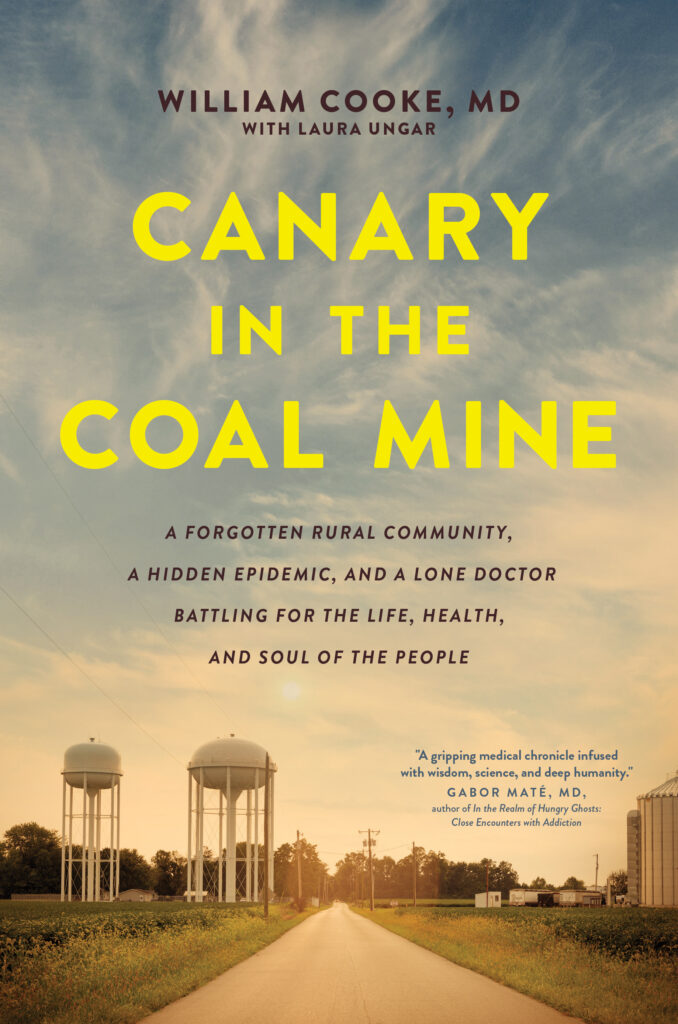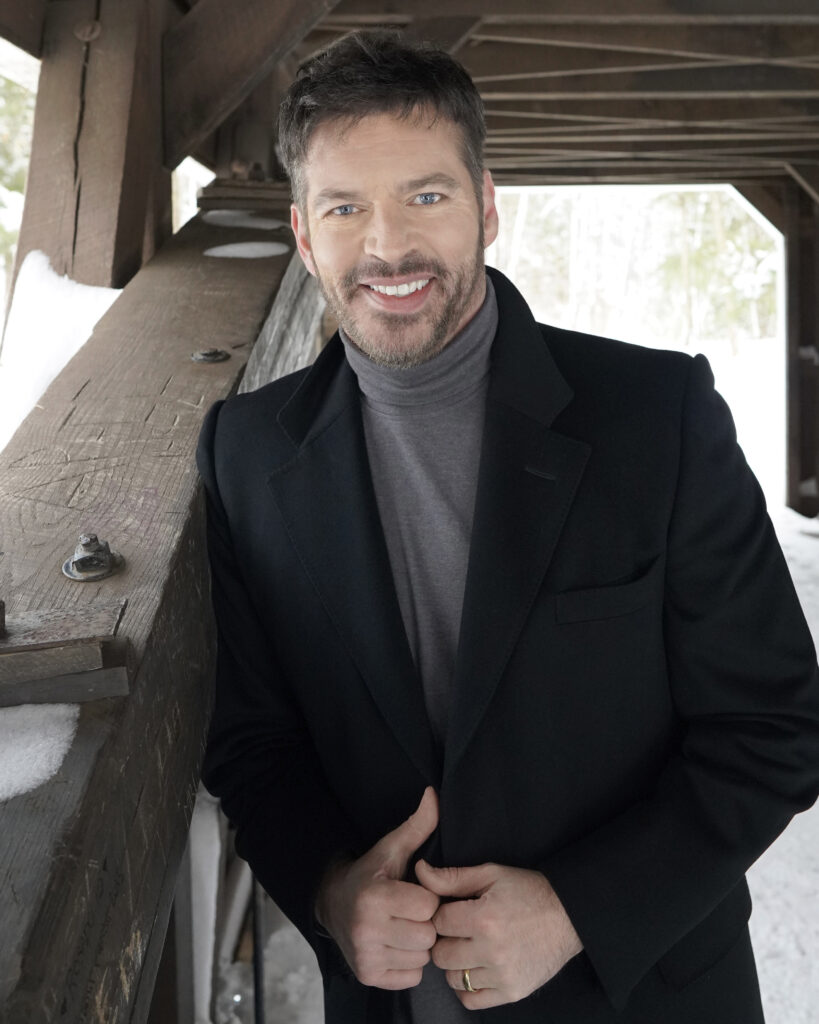God’s Unexpected Answers to Our Toughest Questions: Lathan Warlick and Dr. William Cooke
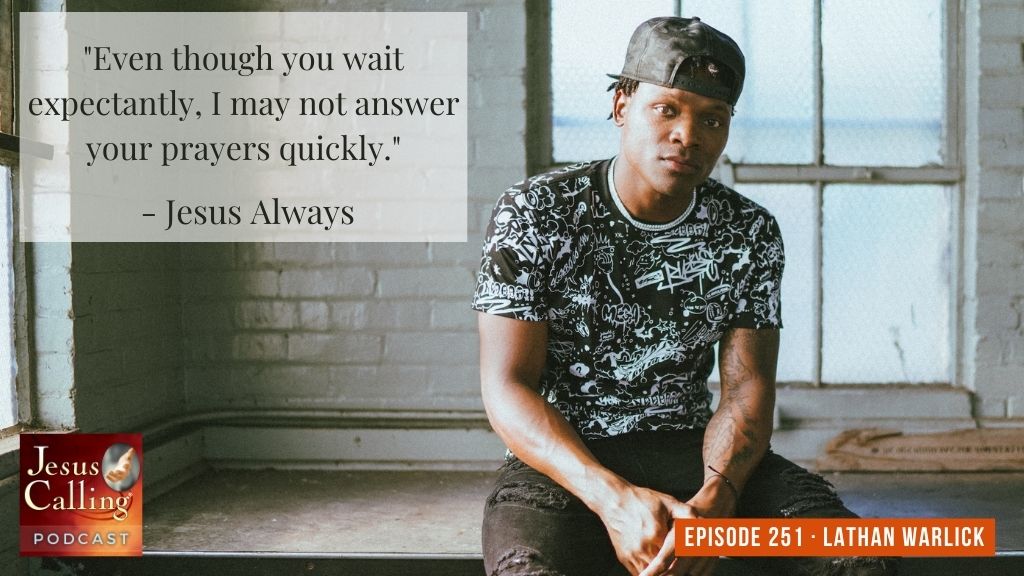
Lathan Warlick: I’m just trying to listen to His voice. And that’s the thing about listening to His voice is making sure you’re not so distracted with everything else that you can’t hear His voice.
God’s Unexpected Answers to Our Toughest Questions: Lathan Warlick and Dr. William Cooke – Episode #251
Narrator: Sometimes when we pray, we really want answers, and sometimes, try as we might, we don’t always get those answers we’re seeking. However, our faith tells us that when we ask for help, whether we see it or feel it, God is there. When we ask for guidance, He leads us, not always on the path we would choose, but one that shapes who we are to become—and always to a place where He knows we can be used well.
Lathan Warlick is a positive music artist who grew up in a rough neighborhood. One night while out at a club, after a minor confrontation with two men, Lathan found himself in the alley outside the club, facing the pair who now pointed a pistol in his face and threatened to kill him—only to be stopped when their gun wouldn’t fire—and this, just after Lathan did the only thing he could think of, that his mother had always said to do when he was in trouble—ask God for help.
Dr. William Cooke also grew up without much, but from an early age, knew he wanted to be a doctor. Though it wasn’t an easy path to medical school, he pressed forward and found himself as the one doctor in a town where an opioid crisis was wreaking havoc on the hope and prosperity of the community he served. Both men looked to God for what roads they should take next, and God was faithful to lead them to the next season of faithfulness to Him, and better equipped to serve others.
Let’s start with Lathan’s story.
Lathan Warlick: My name is Lathan, and I’m a positive artist out of my hometown of Jackson, Tennessee. I’m from the east side of Jackson, Tennessee, and it was kind of a rough part of town with a bunch of different gangs going on in my neighborhood. It was kind of rough for me on that end.
My grandma and my mama were always saying something about Jesus or something about God or making us go to church, you know, but like I said, my environment caught me. I didn’t want to go to church. I was just going because they were telling me to go. I was a hard-headed guy.
I’m a dancer. I was a dancer before I started rapping, you know, so I remember doing a talent show in my hometown and we won the talent show. So when we won the talent show we were like, “Man, let’s go celebrate.” What other place is there to celebrate than going to the club, you know? So that’s what we were doing. We went to the club and started dancing. And I remember being in a circle and dancing with some of my guys. And then I noticed that one of the guys, like across the way was looking at us. My cousin beside me, he had problems with the guy and I didn’t even know it. I’m going to tell all of the other guys like, “Okay, look, since we already feel like it’s a problem, we ain’t got to be here. This is our hometown. We can go around to any club we want to. We don’t even have to be here.”
Well, as the guys started leaving, the guy started walking up and as he was walking up to leave to go out the door, he walked past us and a lot of my guys and he stepped on one of my guys’ toes, like, literally stepped on his feet. And as soon as he stepped on his feet, my guy just turns around, was like, “Man.”
And I grabbed him immediately. You know, I picked my guy up and as soon as I picked him up, I turned around and I started walking towards the door. And as I’m walking towards the door, I feel like a hard push on my back, you know? And as I got this hard push on my back, I remember I turned around and I looked and all of a sudden it seemed like the whole club was fighting. It looked like an old Western bar fight, you know, because it was like bottles that were being thrown. I remember seeing a guy hit another guy over the head with a stool, you know, so as I’m sitting here looking at this now, trying to gather my guys, like, “Okay, let me get him out, let me get him out.”
So when I get him out, I got him to the car and I was talking to him and I put him in the car. Well, now everybody in the club is starting to rush out, I’m trying to find out where everybody else is. I remember one of my guys walking up to me and he had a gash on his forehead. First off, he walked up to me holding his head, and I could see, like, the blood on his fingers and my guy had a gash on his head, like from the top of his head all the way down to the middle of his ear from when somebody hit him over the head with a stool, with a bar stool.
You know, now I’m panicking. I’m freaking out. I’m like, “We definitely got to get you to the hospital because this looks bad.” And so I’m shoving him in a car and I’m getting all my guys together. And as I’m gathering them together, I remember seeing two guys walk up to us like they were literally walking up to us. And as these guys were walking up to us, I remember people around them scattering, like, they were running like, “Oh oh oh,” and I stayed and put two and two together because I’m trying to get my people together. I’m like, “What’s going on?” Because it was kind of dark, because we were at a club, it was night. So I’m walking towards the guys that are walking towards us and I’m just sitting there like and when I turned around, everybody was gone.
Now I’m left by myself. I’m just standing in this situation. And as these guys are walking towards me, I’m like, “Dude, this definitely is not good.” So I took off running and I ran around the building of this club. These two guys are chasing me.
And so as I go around, I’ve been in this club, I’m looking back and as I’m looking back and running and looking back and running, I run right into a brick wall. And so I’m standing there and I hit this wall and I’m feeling humiliated, like, “Dang, I didn’t see this wall.” I was like, “This is crazy,” and so as I finally gain my composure and I turn around. These two guys are standing there. So I was thinking to myself, like, Dude, I’ve been jumped before and now it’s time for me to get out of this situation. So I’m going to take my shirt off like, Well, guess I got to fight myself out of the situation. As I’m doing that, the dude comes around with a .45 caliber pistol and he’s just got it down to his side. The guy that he was standing beside was like, “Hey, man, go ahead and shoot him.” Like, they’re like, “Go ahead and kill him, kill him.” And he said, “Ain’t nobody around but us, bro, go ahead and kill him. Go and shoot this dude.” And reality didn’t hit me until he pointed the .45 at me, when he pointed the .45 in my face.
So I’m standing there and as I’m standing there, I can remember my grandmama always saying if I was ever in a time of need to just call on God. That was one of the one things that I can remember, with my back against this wall.
So I’m just sitting there like, Oh, man, I don’t want to die. I don’t want to. I don’t want my parents to see me like this on the news, their son being murdered outside of a club in the back. I don’t want my grandmama seeing this because she’s always trying to teach me and to talk to me about God, about Jesus.
And dude with my back against the wall, nowhere else to go. I’m standing there with this .45 caliber pistol pointed to my face. I remember looking up and I told God, I said, “If You’re really like everybody says You are, then just get me out of this situation.” It was that simple.
“I’m standing there with this .45 caliber pistol pointed to my face. I remember looking up and I told God, and I said, ‘If You’re really like everybody says You are, then just get me out of this situation.’” – Lathan Warlick
And so as this guy looks at me, he looks at his friend. He looked back at me and he said, “Okay.” His friend said, “Go on and shoot him.”
And he looked back at his friend. He said, “You want me to shoot him?”
His friend’s like, “Shoot him, shoot him, what you waiting on? Come on before somebody comes, go on and shoot him.”
He looked at his friend, he looked back at me, and he put the trigger right in my face. He just pulled the trigger. When he pulled the trigger, the gun clicked and after the gun clicked, I really looked at it like, Oh my God, this is it. Like, this is life. Is this what death is like? Is this the experience of me going to wherever I’m going?
But at the same time that he pulled the trigger, his friend told him again, he was like, “Man, you don’t know what you’re doing. You don’t know what you’re doing. Give me the gun. Give me the gun.” And he took the gun out of his hand.
When he took the gun at his hand, he cocked it back and a bullet ejected out of the gun. So when he cocked it back again, he joined in on it. As soon as he drew down on me and he got right to me, a car hit the corner. And when a car hit the corner, the lights from the car, it sent him into a like, “Oh, let me put up [the gun]. Let me put it up,” you know? And so they put it up and they kind of walked off a little bit and then they took off running.
I’m walking away from the scene, walking away from the area, I just feel something heavy, you know what I’m saying? Like, it’s a feeling I had never felt in my life. You know, I’m saying it was like a heavy feeling. It was like something was sitting on my shoulders. It was like something was holding me, you know, and the feeling was so powerful that it made me start weeping for no reason.
“It was like something was sitting on my shoulders. It was like something was holding me, you know, and the feeling was so powerful that it made me start weeping for no reason.” – Lathan Warlick, on surviving a near-death experience
I remember turning around and walking back to the spot that I was standing, you know, and as I’m turning around, walking back to the spot that I was standing, wiping these tears from my eyes, I can just remember me looking down at the bullet from where the guy had ejected the gun, and I’m looking down at this bullet and it’s like that was my first encounter with God, that was my first encounter with the Holy Spirit. And I really felt Him saying like, “Before you say, ‘This gun jammed,’ since you know so much about guns, I want to show you that it didn’t jam.” And when I picked the bullet up, God was really telling me, like, “This is an indent on the back of the bullet because I don’t want you to really feel like this gun jammed. This is an indent on the back of the bullet to let you know that the hammer hit the bullet but the lid didn’t fly off of it. So now, since that happened, I want you to go tell people about Me.”
I got back in the car. I leaned my head against the window, sitting in my partner’s car. And I was just looking up like, Dude, I’m changed. My life is changed. I don’t want to do this any more. I don’t even want to be in this environment.
“I was just looking up like, Dude, I’m changed. My life is changed. I don’t want to do this any more. I don’t even want to be in this environment.”-Lathan Warlick, on surviving a near-death experience
And I remember coming home this same night. My dad would be so worried about me. I would go to the club at night and I’d get back at like three thirty in the morning. And he would be sitting at the table just like, “I’m just worried about you.”
I told that to my daddy. I remember my daddy weeping so hard. I’ve never seen him cry a day in his life. And he was just telling me, man, like, “I stayed up day and night praying for you.” And that’s when I realized, like, I got to stop. I got to get away from this, and even after the incident I was like, Man, I got a second chance at life.
A Change in Heart, A Change in Direction
I didn’t change overnight. Years later, after I got to understand Christ, after I got to understand Jesus, [I realized] the same God back then [in the Bible], that’s the same God right now. How can you not believe in miracles right now when they went on back then? God is still showing Himself just like that every single day, just like then.
So now I get connected with one of my guys, Michael Hunt. I remember seeing Michael Hunt go to schools when I was in high school. This guy would be praying at games. Me and my guys would be like, “Look at this guy,” you know, we would be like, “Oh, this guy preaching at school or something.” But I didn’t understand how Michael was. I didn’t understand the relationship Michael had with Christ then. But that impacted me.
When Michael got back in contact with me, I would tell him all the time, like, “Bro, I remember seeing you in school pray for folks so much.” So I got connected with Michael after this because Michael remembered me through school and when I got connected with Michael he started taking me to different spots like, “Lathan, man, let’s see some of your dancing,” cause now I’m doing it to gospel music. I’m doing it to stuff like Tye Tribbett, I’m doing it to stuff like Lecrae and Anno Domini. I’m dancing. But it’s not on the secular side. I’m doing it to gospel artists.
And so I go to this show one time and this is how I converted from dancing straight into music. We did it like almost at the school auditorium. Well, it was about seven o’clock that night. So I’m standing in the hallway waiting for my time because I’m late because I was a dancer so I was last. And these guys, of course, they went around just telling you about God and even had artists and rappers, you know, some Christian rappers. You know, they were just talking to people, rapping about God. And I remember standing in the hallway and this lady rose up in a wheelchair from behind me. And I’m first off, I’m like, Okay, where did this lady come from? Because, I mean, maybe she was lost. You know, I didn’t really think about it. But now as I think about it now, it’s like, Dang, what did you come from? And she had a bag with some bracelets that said WWJD, ‘What Would Jesus Do?’ bracelets, and she gave me this bracelet. She was just like, “Son, do you believe in prophets?”
And I was like, “Well, yeah, you know, like the prophets in the Bible?”
She’s like, “Yeah, a lot of people’s problems with prophets is when people prophesy over their life, they tend to not believe it. They tend to kind of pull away from it or just think this person is just talking.” She was like, “But son, you ain’t put here to use your feet or your legs. You [were] put here to use your mouth.”
And I was just like, Okay, whatever that means. So I told the lady, you know, “Thank you, you know, I appreciate it. Thank you so much.”
So I get on stage trying to prepare myself for this and do this. I stand on stage. It was packed. It was so packed in there. And as I stand on stage, I’m standing there like, Wait, my feet feel stiff. I literally I’m sitting there like, Dang, I feel like I can’t move. And so I told my guy I’m like, “Yo, give me a mic, give me a mic,” you know, and he brings me a mic and I grab the mic. And I was like, “I know y’all waiting on me to dance. I know y’all want to see somebody dancing,” I say, “but I really feel like the Lord is leading me to do something else.” I said, “This is something that I wrote two days ago, you know, so let me know if y’all are really understanding.”
And I remember saying on stage, I was just like:
I’m a sinner saved by grace.
To God be the glory.
The end of 2011 should have been the end of my story
See, the devil tried to take it but Jesus said…
And I look up and these folks are like, “Wait a minute.” And by the time I got done, everybody stood up slowly, one at a time, just started clapping. That was me then like, God’s showing me like I’m qualifying the calling. I’m showing you this is your calling.
God was calling me to be a light out into the world. You know, since God gave me this vision of God, love, and unity, you’re going to hear a lot of that stuff on there. I mean, from the positive hip hop to the country scene. I’m dropping this project that we’ve been working on so diligently. It’s like going back to the roots of how we grew up. The roots of how we really grew up, the roots of how I grew up and having strong women in my life to push us to another level.
“God was calling me to be a light out into the world.” – Lathan Warlick
So if He called me to be a light out into the world, just like Luke 15 when He talks about how people in heaven are going to be rejoicing over this one person getting saved versus a thousand people that’s already saved. So if I put that in perspective, like, “Okay, if I do that God, if you want me to be in this area, put me everywhere,” like I talk to God like that. I don’t know how y’all talk to God, but I talk to God like, “If you don’t mind, can you put me here,” you know, so that’s why I say [I’m] a positive artist, because if you label me as a Christian artist or a country artist or a gospel rapper or hip hop artist, then you’re going to put me in a box.
It was like God put me out of my comfort zone to put me over here in order for something else to happen. God will make stuff so uncomfortable for you for Him to get your attention. You really got to think about it like that. Like we used to go on this day to day life. We walk in a straight line, people telling us what to do. When God knocks that off track it’s like, “What are we going to do? What are we going to do now?” And God’s simply saying, like, “Come to me, because you got to come to me for your answers. You’ve got to come to me for your resources. And I’m [gonna] throw this out so you can understand that, hey, you got to come to me in order for something to happen.”
“It was like God put me out of my comfort zone to put me over here in order for something else to happen. God will make stuff so uncomfortable for you for Him to get your attention.” – Lathan Warlick
Narrator: To learn more about Lathan’s music, visit lathanwarlick.com.
Stay tuned to Dr. William Cooke’s story after a brief message.
Jesus Calling is back for Season 2 of the TV Show Jesus Calling: Stories of Faith which premieres on May 18th. This season is hosted by Susie McEntire-Eaton and features so many wonderful stories from artists, celebrities, sports figures, and more. You won’t want to miss these real-life stories from people like football legend Kurt Warner, country superstar Reba McEntire, worship singer David Crowder, and beloved coach Tony Dungy—and many more. Tune in every Tuesday and then again on Sunday starting May 18th on Circle TV. For more information on how to get the show via cable or on streaming devices, visit Circleallacess.com.
Our next guest is Dr. William Cooke, a family physician specializing in addiction and HIV medicine. He is known across the world for his work on the frontlines of America’s worst opioid and HIV epidemic in southern Indiana. In 2019, Dr. Cooke was named National Physician of the Year by the American Academy of Family Physicians. Growing up in poverty, Dr. Cooke shares how he was drawn to being a physician in his teens, not only out of a fascination for science but because he wanted to truly make a difference by helping others. That desire led him to begin his practice in a community that was dealing with a devastating opioid crisis that was so overwhelming, after several exhausting years, Dr. Cooke questioned God as to if he had pursued the right path. Just as he was ready to throw in the towel, the answer to his question came from a very unexpected place.
Dr. William Cooke: My name is Dr. William Cooke, I’m a physician in southern Indiana. I’ve been there going on twenty years. And I recently wrote a book called Canary in the Coal Mine.
Everyone Deserves to Belong
My family has a long history of poverty. We came out of Appalachia several generations before, and my mom grew up as a squatter, basically, on the Ohio River. She tells these really frightening stories of how they had to basically grab their belongings, whatever they could carry and just kind of scurry into the cover of night and just a shock to find some shelter. That’s how she grew up.
We ended up being kind of disconnected from that part of our family—there was a lot of poverty, a lot of drug use, substance use, toxic stress. And, you know, her coming out of that, she really didn’t want to have a lot to do with that or want us to be exposed to that. I think that’s part of why we became so close to our church family and growing up. We were there really any time the doors were open: Sunday morning, Sunday night, Wednesday night, revivals during the week, we were helping out with different programs. My dad drove the church bus. We picked up kids on the way. We were very much part of the church and the church was very much part of us. They were our family.
“We were very much part of the church and the church was very much part of us. They were our family.” – Dr. William Cooke
There were a couple of times when some of the kids that we brought with us on the church route, the van route came in shorts because they didn’t have anything else. That’s what they had. And some of the elders in the church kind of grumbled about that and kind of pulled my dad aside and said, “You can’t bring kids to church dressed that way.”
And my dad said, you know, “Jesus wouldn’t keep kids from coming to church.”
And that’s not something he was willing to do. He was going to continue to bring them to church regardless of how they’re dressed, because they needed to feel safe. They needed to feel like they belong. They needed to feel accepted and loved because who knows what was going on at home.
Looking to Make a Difference
My calling to go into medicine really was around the age of fifteen. I remember sitting in church listening to the guest speaker and just filling this overwhelming desire to do something for God, for people, just kind of well up inside of me. And there wasn’t like any specific thing that I felt like I was being called to do at that time, but just that I needed to make a decision to serve God.
Entering into college was a bit of a challenge. I grew up in a poor home without a lot of resources. Most of my family had never graduated high school, let alone gone to college. So college was a little bit of a challenge at first. I had to figure out how to study, how to take notes, those sorts of things. But once once I did, things started to click and I was able to overcome that. But then it was difficult to get into medical school and ended up going overseas just so that I could go to medical school. So as I was nearing the end of my training, I started to look around for a community that I could go to and make a difference.
I felt my calling was to try to work with individuals, families in a community who didn’t have access to health and opportunity, and hope. And so I started looking for towns across Appalachia and the Midwest that may need a doctor. And I could literally throw a dart at a map and find one. I mean, it was not hard to find struggling communities where industrialization had left rampant poverty and job insecurity, and generational trauma from a lot of that. Appalachia was awash with opioid use and in poverty and toxic stress and all of that. So it wasn’t hard to find a community in need. What was hardest to figure out where I felt, you know, God wanted me and that was important to me to not just go anywhere but to go somewhere that I felt God was calling me to go.
“I felt my calling was to try to work with individuals, families in a community that didn’t have access to health and opportunity and hope.” – Dr. Willam Cooke
My family came out of Appalachia, just like a lot of the people in southern Indiana did, along the hillbilly highway, looking for opportunity and hope. And one of those places that people stopped was in Austin, Indiana. When I came to Austin in 2004 and opened my practice and started working with people, even though I had grown up in a similar community and my family had overcome poverty and that sort of thing with substance use and alcohol use, I was honestly surprised. I was overwhelmed by the level of despair and hopelessness that I found in Austin. I really didn’t understand how a community that was so disconnected, so depressed, so hopeless, with so much toxic stress within the families, and really the sense of learned helplessness that had set in—I didn’t know that a place like that really, truly existed in America.
Then as I started working with patients and families, I started to realize that there was something really dark there, that there was this sense that the American dream was not available to everyone.
“As I started working with patients and families, I started to realize that there was something really dark there, that there was this sense that the American dream was not available to everyone.” – Dr. William Cooke
Something really bad was happening out there. And I was curious. I was scared. I was a little overwhelmed. I was apprehensive. I was confused. And I started to explore, you know, What is this thing happening? and that’s when I started realizing that people won’t do well unless their basic human needs are met. You know, people won’t do well if all of the good choices that they’re making don’t matter because the hardships they’re facing are so overwhelming, they’re insurmountable. And so we needed to figure out a way to provide basic fundamental security, to give people a firm foundation to stand on and then also access to those vital community resources that people need in order to overcome their hardships so that when they do make good choices, they matter.
Fighting the Opioid Crisis at Its Roots
Diseases and disasters don’t cause inequity, they reveal the inequity that already is existing in our communities. And it makes those things even worse and they affect all the other people in the community. The surgeon general released a report called Community Health and Economic Prosperity, because those two things are connected. If the community health isn’t where it needs to be and people are suffering and not able to work or dying young or having disabilities, the economic prosperity of that community is also suffering and being dragged down. They’re related to each other. And by improving every single person’s access to health and opportunity in a community, it’s also helping that community be more prosperous economically.
And first we saw Hepatitis C start spreading through the community. And that was a really big warning sign that something really bad was occurring in the community. Hepatitis C is often considered a harbinger for HIV, they’re spread the same way. So a lot of warning signals were there. People started speaking out from a public health standpoint that we needed to do something different. We needed to be able to go into communities and start testing people and linking them to care and providing them with safe ways of injecting so that these diseases weren’t being spread within the community. All that was ignored and fast-forwarding to 2015, we started having people test positive for HIV in southern Indiana, in Austin, Indiana, and that ballooned throughout the year to become one of the largest HIV outbreaks in the world.
So there was a lot of stigma about the town. Being the only doctor there, people started becoming afraid to come to the doctor’s office, not really understanding how HIV is spread. They were even afraid of maybe contracting HIV in the waiting room or in an exam room. And so they were afraid to come to the office. We obviously needed a lot of help. So the state came in. The CDC came in first, reporters from all over the world. And we went from a place where I was begging for help and not feeling heard at all to having the entire world at our doorstep, basically. So that was a pretty overwhelming experience. And it wasn’t all helpful either, because that same sentiment that I came into Austin with that, you know, people are responsible for their choices, you know, They just need to try harder and they’ll be okay, was the predominant response that people came into Austin with and they hadn’t been there long enough to really understand the way that I had learned by hearing people’s stories and experiencing, you know, the background of what people were living with.
I was wanting to give a voice to people whose voices were not being heard and really saying, “We can’t just address the HIV, you know, that’s just the very surface symptom of a much, much deeper problem that has deep generational roots.” We had to treat people, not diseases. So this seemed like the opportunity to do something new that, you know, this had never happened before and the CDC didn’t know what to do. No one really knew how to respond to this.
“We had to treat people, not diseases. So this seemed like the opportunity to do something new that, you know, this had never happened before and the CDC didn’t know what to do. No one really knew how to respond to this.” – Dr. William Cooke
An Unexpected Lesson in Surrender
I remember being on my knees, you know, tears running down my face before God and just asking Him what was I supposed to do? I didn’t have any more strength left. I had fought for this community for over a decade at this point and had poured my life into this work and sacrificed a lot. And it seemed like everything that we had done up to that point didn’t matter. And I had worked really hard to make a difference. You know, I had this idea that if I had enough faith and I fought hard enough for the people of Austin, that God would come in and fill in the gap and make the change. And I’d done my part. I had done my part. The people of Austin had tried. Why was God not doing what I thought was His end of the bargain? I was mad. I was distraught. I was beginning to feel like, you know, I had heard something wrong, that calling was something different and I messed up. So I decided I could not continue on. I could not continue to do the work in Austin. It was too hard to watch people suffer and die without the resources that they needed. And I didn’t have the resources to help them.
“I had this idea that if I had enough faith and I fought hard enough for the people of Austin, that God would come in and fill in the gap and make the change. And I’d done my part. I had done my part. The people of Austin had tried. Why was God not doing what I thought was His end of the bargain?” – Dr. William Cooke
I went on this mission trip to the Amazon. I got on this boat that went out into really the middle of nowhere. It’s no streets or anything that could get to the villages that we were going to. And I ran away from my calling. I was watching these communities take care of each other. They would feed each other and help. I remember going to this one part of the Amazon where these two rivers come together. There’s this really muddy river and this really dark-watered river. And these two rivers come together. And where they meet, there’s a very clear demarcation called the meeting of the waters. And it’s these two waters, these two rivers basically coming together and over time merging and their separateness giving up to become the Amazon River, the greatest river in the world. They had to give up their identity to become part of something bigger than themselves.
I felt like He was telling me that I had fought long enough. I needed to surrender. The story of Austin wasn’t my story, it’s not about me coming in and saving the day. I wasn’t some super hero there to do something great for Austin. The story of Austin is the story of Austin. And I just needed to surrender myself to be a part of that, that just connecting with people on a human level and showing them love and compassion oftentimes for the first time in their life was enough, that that’s okay.
And so when I left the Amazon and came back home, you know, I realized that, Yeah, this was my calling, that I would do everything I could to help people in Austin and I needed to stop fighting so hard for this change that I wanted to make happen and just allow myself to be a part of the story instead of the story.
A Community in Recovery
So what we’ve seen in Austin since the 2015 HIV outbreak has been a pretty phenomenal success story. We went from having one of the worst HIV incidences in the world to having the best in the state. We’ve seen our recovery community explode over a thousand percent. We went from really having no community recovery groups to having around twenty recovery groups from a lot of different angles. We have treatment programs. We have an inpatient treatment program right in the county now. I’m able to admit patients and go see them, start treating their addiction in a person-centered way alongside their primary care and oftentimes their HIV as well.
And I found that integrating care around a person instead of sending them all over the country looking for providers that can treat this or that, integrating their care in one place has really been a successful model for people. And so we’ve found a lot of success. We’re also developing programs where they can learn about finances to get access to some job training, to do cooking classes, connect with churches. A lot of churches have gone online now as well. And they could be a part of a service that way, a small group Bible study. So we’re really excited to be able to connect people who have been disconnected more than any of us back to community, to health, to opportunity so that they can live healthier, more prosperous lives again.
I do a lot of different things when I’m out of the clinic. One, I have about a twenty-thirty minute commute and I’ll often drive without the radio on and just meditate and decompress and process a lot of what I’ve been experiencing. And that’s oftentimes a very special quiet time with God, to just kind of think through what He means to me and what I can do for others because of that relationship that I have with Him. I do a lot of reading.
Here’s a passage from Jesus Calling, April 27th:
Come to Me with empty hands and an open heart, ready to receive abundant blessings. I know the depth and breadth of your neediness. Your life-path has been difficult, draining you of strength. Come to Me for nurture. Let Me fill you up with My Presence: I in you, and you in Me.
My Power flows most freely into weak ones aware of their need for Me. Faltering steps of dependence are not lack of faith; they are links to My Presence.
That passage speaks really strongly to my life. It really took moments of coming to the end of my strength to really appreciate how instead of fighting so hard, surrendering to Him and surrendering my story to a greater purpose and story allowed me to do things and go places and meet people that I never would have without Him taking me the rest of the way.
When we become willing to set aside our own story and enter into other people’s stories, to leave our biases and prejudices behind and just allow them to be who they are and reveal themselves to us, just like we reveal ourselves before God in a safe way. And that’s the only way we can be known before God is to let Him know our true identity, our true self, vulnerably and openly. We can turn around and offer that same privilege to other people by withholding our biases and expectations and prejudices and just leave our story behind, enter their story, and experience, really, what it is to be them. And by doing that, we develop an empathy that we wouldn’t have otherwise and people that we may think of as other, that may look different, act different, believe differently, think differently than us—and again, not coming in with this idea that we already know the answers, but really to love someone the way that God loved us, a love that is very action-driven and then provide us the opportunity to live by faith in an actionable way.
Narrator: You can find Dr. Cooke’s book, Canary in the Coal Mine, everywhere books are sold.
If you’d like to hear more stories about how we can trust that God is guiding us, check out our interview with Carlos Whittaker.
Narrator: Next time on the Jesus Calling Podcast, we hear from Grammy and Emmy award-winning singer, pianist, and actor Harry Connick Jr., who shares how being alone in your faith can bring healing.
Harry: My faith comes first. It’s been there in my darkest hour, it’s been there at my most shining hour and everywhere in between. And I’ll be the first to admit sometimes I question my faith, sometimes I doubt it. I don’t question the existence of God, but sometimes I wonder why certain things are happening and why I can’t handle them a little bit better when I’m going through a personal loss or if something doesn’t go well in my personal life. Sometimes I ask, “Why is this happening? What’s going on?”
